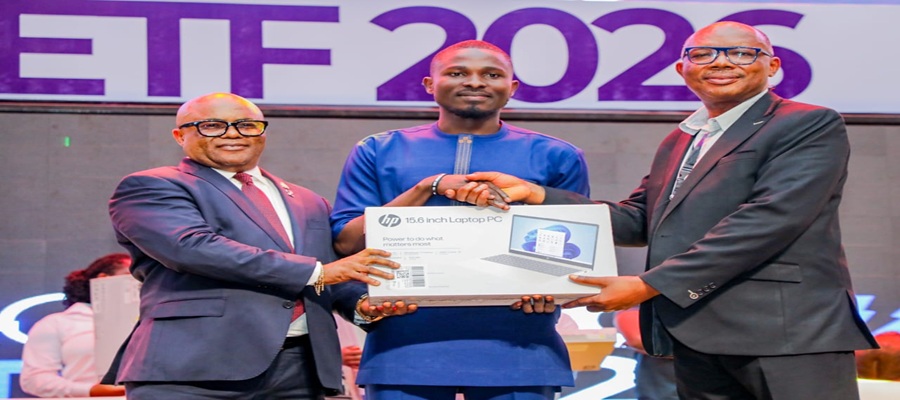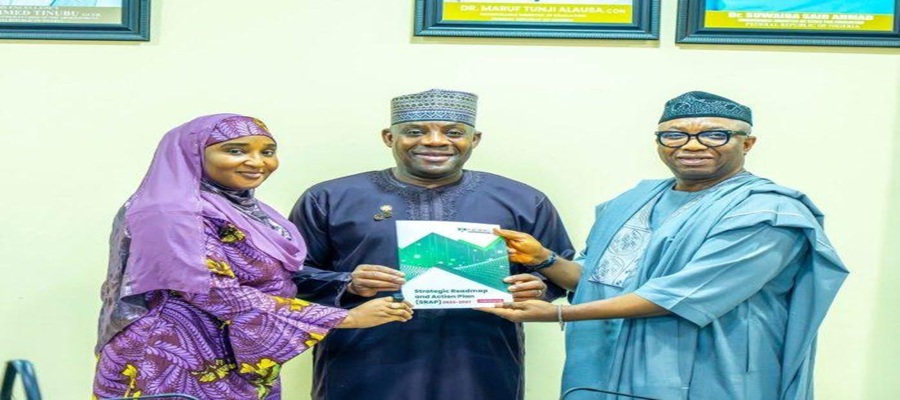Telecom
15 Telecom Operators Face Collapse as Subscribers Shrink

The massive growth recorded in the Nigerian telecommunications space since the liberalisation of the industry which started with the return to democratic rule has started to slow down as the fate of about 15 telecommunication operating companies hang in the balance as collapse and stunted growth threaten their survival, according to The Leadership newspaper.
The latest figures released by the Nigerian Communications Commission (NCC) on its website has shown that smaller telecommunication operators are gradually dying off as stiff competitive environment, inability to access sufficient funds, technology obsolesce, and poor management is wiping out the small players in the industry.
According to an NCC industry study which computed the 2013 subscriber base of all licensed telecom operators including the Global System for Mobile communications (GSM) players, fixed and mobile Code Division Multiple Access (CDMA) operators, Fixed Wireless Access (FWA) and data operators on Time Division Multiple Access (TDMA) operators and fourth generation long term evolution (4G LTE) service providers, many of the small players are on the brink of collapse.
The Leadership reported that apart from MTN, Globacom, Airtel, Etisalat and Visafone which added subscribers to their networks in 2013, most of the other telecom service providers did not grow their subscribers in all the four quarters of 2013. Out of four CDMA mobile operators, Starcomms and Reliance Telecoms (ZoomMobile) have ceased to operate their networks thereby contributing nothing to the overall subscriber base in 2013, while Multi-Links renders skeletal services.
On voice subscription, Visafone moved from 2,138,154 in the first quarter 2013 to 2,094,785 in the second quarter and from 2,438,590 in the third quarter and ended the fourth quarter with 2,063,330. Multi-Links also saw its voice subscriber base nosedive from 207,872 in the first quarter to 151,688 and 85,050 and 50,135 in the third and fourth quarters respectively.
The fixed/fixed wireless telecom operators who did not add a single subscriber to their network throughout 2013 include Starcomms Limited, Multilinks Telkom, Reliance Telecoms (Zoom),Intercellular Nigeria Limited, VGC Communications which is owned by MTN, MTS 1st Communications, Disc Communications, WiTEL and O’Net (Odua Telecom).
Others are Rainbownet Limited, Monarch Communications, XS Broadband (also owned by MTN), Webcom, IPNX and NITEL. Globacom fixed wireless network recorded 6,810 6,933 in the third and fourth quarter 2013 respectively. The fixed/fixed wireless operators saw their subscriber base move from 405,625, 382,678, 362,392 and 360,537 in each of the quarters of 2014. They started with a teledensity of 5.66 per cent and ended with 0.51 per cent.
According to the NCC, only 57,840,299 out of the 121,888,014 million active subscribers on the GSM networks used Internet data. The Internet subscriber data released by the NCC shows that 64,047,715 subscribers have yet to use data on the Internet as at end of 2013.
MTN Nigeria retained its lead in the telecoms market with more than eight million active lines, more than the combined subscribers of its two rivals—Globacom and Airtel Nigeria.
A key highlight of the NCC market information is that Globacom recorded 25,019,862 active connections as against 21,591,904 posted by Airtel Nigeria, indicating that the former was able to rake over 3.4 million active lines to outstrip its competitor by the middle of last year. MTN Nigeria still remains the market leader with 55,238,430 active lines.
MTN also left no doubt as to the success of its market ramp up campaign, as it recorded an impressive 7.69 per cent growth within the quarter, though dropping from nine per cent in the preceding quarter of mid-year 2013.
Telecom
NITDA Empowers 50 Enugu Youths with Digital Tools, Hails Mbah’s Support

In a significant step toward deepening digital inclusion in Enugu State, the National Information Technology Development Agency (NITDA) has empowered 50 young innovators with digital tools, while commending Governor Peter Mbah for his pivotal support of the Agency’s South-East Zonal Office.

NITDA
Delivering the goodwill message at the event, NITDA Director General Kashifu Inuwa, represented by Dr. Aristotle Onumo, Director of Stakeholders Management and Partnerships, described the Governor’s commitment as instrumental to the successful launch and rapid performance of the Zonal Office, now recognised as one of NITDA’s top-performing offices nationwide.
“Inuwa noted that Enugu, historically known as Nigeria’s coal city, is undergoing a transition from natural-resource reliance to a knowledge-driven economy. ‘Enugu was once an energy capital powering industries from beneath the earth. Today, the energy driving Enugu is the creativity, talent, and determination of its young people,’” the DG’s message read.
Highlighting the role of digital technology in global economic growth, Inuwa cited projections that the digital economy could contribute up to $23 trillion to global GDP in the coming years, stressing that investment in digital skills today will shape national prosperity tomorrow.
As part of the initiative, over 900 youths registered on NITDA’s digital training platform, with 50 outstanding participants receiving digital tools to enhance their skills and foster innovation. Additionally, 250 participants were recognised for their dedication and excellence throughout the training.
“Nigeria must not only consume technology but create it. Innovation must become our currency, and digital skills must become the bridge to opportunity,” Inuwa emphasised, noting NITDA’s goal of achieving 70 percent digital literacy among Nigerians by 2027.
The initiative aligns with the Agency’s broader strategy to shift the nation from a resource-based economy to a knowledge-based economy driven by innovation, entrepreneurship, and technology.
Governor Peter Mbah, in his remarks, described the festival as more than a technology conference, calling it “a reinforcement of intent” and a validation of the state’s ambition to become a credible node in Nigeria’s growing innovation ecosystem.
Drawing a comparison between Enugu’s historic coal industry and its emerging digital future, he observed that while coal once powered industries across Europe and West Africa, the economic benefits largely left the state.
Today, he argued, Enugu’s greatest resource is its people—their creativity, skills, and innovative potential.
By investing in technology, education, and digital infrastructure, Mbah envisions a future where the state harnesses local talent to generate value, turning ideas into globally competitive solutions and establishing Enugu as a hub of knowledge and digital innovation.
Referencing global technology giants such as Apple, Microsoft, Amazon, Meta, and Tesla, he stressed that control over digital infrastructure is the key to economic leverage in the 21st century.
“Find what is broken, understand it deeply, and fix it properly,” he advised, underscoring that innovation is not about glamour but solving real problems.
He highlighted Enugu’s progress in embedding artificial intelligence in security operations, digitising core government functions, and introducing Geographic Information Systems in land administration to enhance efficiency and strengthen land rights.
Earlier, Dr. Prince Lawrence Ezeh, Enugu State Commissioner for Innovation, Science, and Technology, delivered the welcoming address, highlighting the progress made since the inaugural edition of the festival.
He noted that thousands of youths have been trained through digital skills initiatives, strategic partnerships have been launched—including Nigeria’s largest tech hub initiative—and technology clusters in blockchain and gaming have expanded, positioning Enugu as an emerging national tech leader.
Dr. Ezeh outlined the core objectives of ETF 2026: transforming businesses through innovative strategies aligned with the digital economy, and strengthening communities by fostering collaboration and resilience.
He also revealed ongoing reforms to embed technology across governance and public services, including advanced real-time security systems, smart green schools, and modernised public service platforms.
Other dignitaries in attendance included Anna Vesterholm, Ambassador of Sweden to Nigeria; Aminu Maida, Executive Vice Chairman of the Nigerian Communications Commission; alongside captains of industry and leading technology experts.
Telecom
Sophos Report: Identity Attacks Drive 67% of Cyber Incidents as Threat Groups Surge in 2025

Sophos, a global leader of innovative security solutions for defeating cyberattacks, today released the 2026 Sophos Active Adversary Report.

John Shier
It reveals that 67% of all incidents investigated by Sophos Incident Response (IR) and Managed Detection and Response (MDR) teams last year were rooted in identity-related attacks.
The findings highlight how attackers continue to exploit compromised credentials, weak or missing multifactor authentication (MFA), and poorly protected identity systems, often without needing to deploy new tools or techniques.
Key findings include:
- A shift from exploited vulnerabilities toward compromised credentials, with brute-force activity (15.6%) drawing almost level with exploitation (16%) as an initial access method
- Median dwell time declined to three days. This was driven by attackers’ movements, but also by defenders reacting more swiftly. This was particularly notable in MDR environments.
- Attackers are getting faster at reaching Active Directory (AD). Once an attacker is inside an organization it takes them just 3.4 hours to get to the AD server.
· Ransomware remains a firmly off-hours activity. 88% of ransomware payloads are deployed out of hours, and 79% of data exfiltration actions take place out of hours, emphasising the continued need for 24/7 coverage.
- Lack of telemetry undermines defense efforts. Missing logs due to data retention issues doubled over last year. This rise was largely driven by firewall appliances where the default was only seven days, and in some cases, 24 hours.
Identity Attacks Accelerate While MFA Gaps Persist
The report shows a continued rise in attacks rooted in identity compromise, including stolen credentials, brute-force activity, and phishing.
While exploited vulnerabilities remain a factor, attackers increasingly rely on valid accounts to gain initial access, allowing them to bypass traditional perimeter defenses.
There was also a lack of MFA in 59% of cases, facilitating the abuse of stolen and compromised credentials to penetrate an organization.
“The most concerning finding in the report has actually been years in the making: The dominance of identity-related root causes for successful initial access.
“Compromised credentials, brute-force attacks, phishing, and other tactics leverage weaknesses that can’t be addressed by simple patch hygiene. Organizations must take a proactive approach to identity security,” said John Shier, Field CISO and lead author of the report.
More Threat Groups, Broader Risk
Sophos researchers observed the highest number of active threat groups recorded in the report’s history, expanding the overall threat landscape and increasing the challenge of attribution.
- Akira (GOLD SAHARA) and Qilin (GOLD FEATHER) were the most active ransomware brands observed, with Akira dominating across 22% of incidents
- 51 ransomware brands appeared across cases, including 27 returning brands and 24 new ones
- Only four brands or techniques, LockBit, MedusaLocker, Phobos, and abuse of BitLocker, have persisted continuously since 2020, the first year of Active Adversary Report data
“Law enforcement action continues to cause disruption in the ransomware ecosystem. Although we still see activity from LockBit, the dominance and reputation it once had has clearly been impacted.
“However, it means we are seeing a raft of other groups vying for dominance and many more emerging groups. For defenders, it’s important to understand the groups and their TTPs in order to best protect your organization,” continued Shier.
AI Hype Meets Reality
Despite widespread predictions, Sophos found no evidence of a major AI-driven transformation in attacker behavior. While generative AI has increased the speed and polish of phishing and social engineering, it has not yet produced fundamentally new attack techniques.
“AI is adding scale and noise but not yet replacing attackers. While in the future GenAI could be the next accelerator, right now the fundamentals still matter: strong identity protection, reliable telemetry, and the ability to respond quickly when something goes wrong,” said Shier.
Defensive Takeaways
Based on the findings of the 2026 Active Adversary Report, Sophos recommends organizations:
- Deploy phishing-resistant MFA and validate its configuration
- Reduce exposure of identity infrastructure and internet-facing services
- Patch known vulnerabilities promptly, especially on edge devices
- Ensure 24/7 monitoring through MDR or equivalent capabilities
- Preserve and retain security logs to support rapid detection and investigation
The 2026 Sophos Active Adversary Report analyzed 661 IR and MDR cases handled between November 1, 2024 and October 31, 2025, spanning organizations across 70 countries and 34 industries.
You can read the full report here[SE1] . https://www.sophos.com/en-us/blog/2026-sophos-active-adversary-report
Telecom
NDPC Urges Education Ministry to Prioritise Data Protection Compliance

Nigeria Data Protection Commission (NDPC) has urged the Federal Ministry of Education to ensure strict compliance with data privacy regulations across Nigeria’s education sector to protect personal information and bolster the nation’s digital infrastructure.

NDPC
National Commissioner and Chief Executive Officer of NDPC, Dr. Vincent Olatunji, issued the call during a working visit to the Minister of Education, Dr. Tunji Alausa, and the Minister of State, Dr. Suwaiba Said Ahmad.
Dr. Olatunji highlighted a significant compliance gap in how educational institutions manage sensitive data, noting that while data underpins President Bola Tinubu’s Renewed Hope Agenda, adherence to protection laws remains low in the sector.
“The significance of data protection cannot be overemphasized as Nigeria transitions to a digital economy,” Dr. Olatunji stated, calling on the Ministry to lead efforts in regulatory compliance.
He outlined NDPC initiatives to raise awareness, including the Digital Privacy Awareness Campaign, Data Privacy Clubs in universities, the Secondary School Data Challenge, and the Adopt-A-School programme, which reached about 8,000 students during National Privacy Week.
The NDPC boss urged the Minister to leverage his office for sector-wide enforcement.
Dr. Olatunji offered free induction training for Ministry staff, Virtual Privacy Academy (VPA) vouchers, and spots in a free certification programme. A joint working group was established to drive implementation.
In response, Dr. Alausa acknowledged that data protection has often been approached with levity but affirmed alignment with the government’s goal of producing 50 million digitally literate citizens.
“It is high time all Ministries, Departments, and Agencies prioritise data protection,” Dr. Alausa said, pledging commitment to elevate schools and educational bodies to global standards.

 E-Business1 day ago
E-Business1 day agoAfDB, UNDP Launch $10Bn AI Initiative for Africa

 News2 days ago
News2 days agoNITDA Urges Stronger State Partnerships as Key to Digital Economy Goals @ South-South Stakeholders Forum

 Telecom2 days ago
Telecom2 days agoGSMA Launches Innovation Fund to Accelerate Green Transition Through Mobile Technology

 E-Business2 days ago
E-Business2 days agoFirm Identifies RenEngine Loader Distributed Through Pirated Games and Software

 Telecom2 days ago
Telecom2 days agoProf. Adeyanju is Strengthening Nigeria’s Digital Backbone for a Connected Future in Two Years of Purposeful Leadership

 E-Financial2 days ago
E-Financial2 days agoFidelity Bank Launches HerFidelity Apprenticeship Programme 2.0 to Boost Women Entrepreneurship

 Telecom1 day ago
Telecom1 day agoGrey Expands Cross-Border Banking with USD Accounts, USDC Support

 E-Financial2 days ago
E-Financial2 days agoTAJBank Secures A1 Ratings from Agusto, Datapro



























